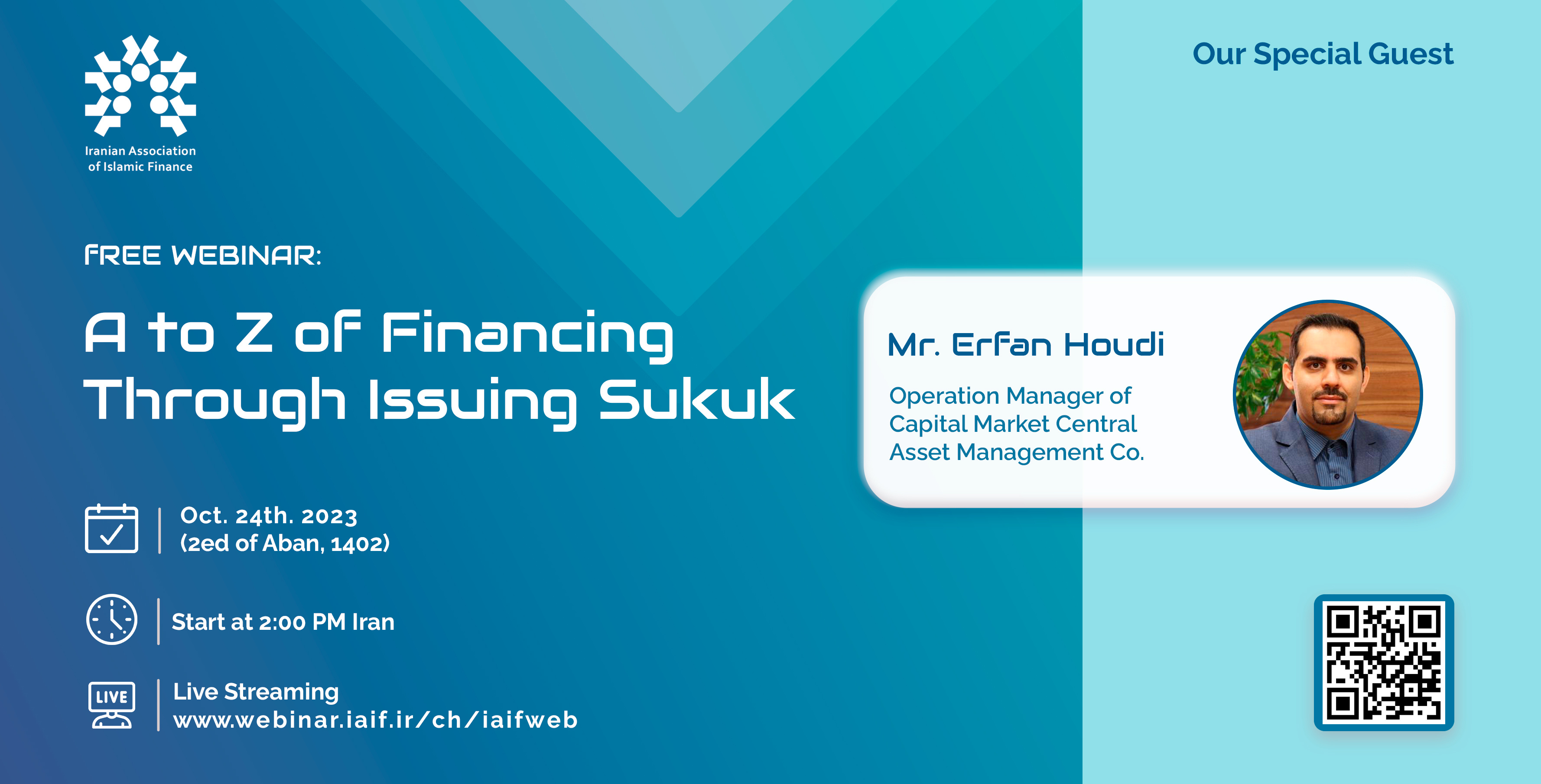
The Iranian Association of Islamic finance held a specialized session on' A to Z of Financing Through Issuing Sukuk' on Oct. 24th, 2023.
Erfan Houdi, Operation Manager of Capital Market Central Asset Management Co., said there are different methods for financing companies in the capital market. Such as supply and listing, commodity exchange, issuance of subordinated bonds, sukuk, crowdfunding, etc. Sukuk is used as a tool by companies operating either as stock market issuers or OTC companies.
Another way is through securities. Securities are divided into two parts, capital and debt, but we want to deal with debt securities or sukuk.
These bonds can be divided into 2 categories: profit and non-profit.
Non-profit instruments are endowment bonds and Qarz al-Hasana. There is no benefit for the investors of these bonds. But companies look for profit. Therefore, profit-making tools have been given more attention. These types of sukuk either have an expected yield or they have a certain yield.
Sukuk is an Islamic financial instrument that was introduced to the world from East Asia and is also being issued in Iran based on Imami jurisprudence (Fiqh). This tool has been so efficient that it is being used in non-Islamic countries such as England.
Important pillars of securities issuance
Founder: A company that intends to finance through the issuance of sukuk is called a founder (Bani). Founders are divided into two categories: a governmental legal entity and a non-governmental legal entity.
Issuer: Capital Market Asset Management Company plays the role of the issuer, which is responsible for issuing sukuk. That is, when an agreement is issued by the Security and Exchange Organization (SEO), the asset management company reviews the bond issuance contracts and after concluding the financing contract, the issuer will offer the sukuk in the trading board. When the buyer and investor purchase these bonds, its fund is deposited to the founder’s account.
Guarantor: It is a binding pillar that companies must use to issue their bonds. The guarantor is the buyer's guarantee. That is, if the founder does not fulfill his obligations, the issuer can refer to the guarantor.
The guarantor can be either a third party, and this third party can be a bank, an insurance or an investment bank. At present, most of the banks provide the guarantee. Companies can introduce the collateral of their securities as a guarantor.
Another method is credit rating. Large listed companies can refer to rating agencies and if they get a minimum rating, they can issue sukuk. But if a company is OTC, it can use a credit rating with reduced collateral value.
Naturally, the third-party guarantor receives a percentage of the financing amount as a fee for fulfilling his guarantee. Therefore, it is more cost-effective for companies to use other methods such as stock collateral or credit rating for their guarantee and only refer to a third party if the conditions are not clear.
Underwriter: This pillar is not binding. The duty of this pillar is the seller's or founder's guarantee. That is, if the bonds are not sold, these companies undertake to buy the bonds. Usually, investment banks or portfolio managers can act as underwriters.
Market maker: a financial institution that has a license to trade certain securities with the commitment to increasing liquidity and regulating the supply and demand of certain securities.
Sales agent: is a legal entity among the brokerage companies of Tehran Stock Exchange or Fara Bourse selected by the founder.
Payment agent: Sama Company is the payment agent. This company has the information of both investors and a founder and is responsible for all payment operations between the founder and the investor and vice versa.
Investment consultant: This pillar is not binding. Companies can act without having a consultant, but it is much better for companies to use investment consultants for the initial issuance of sukuk.
Types of Islamic bonds
Ijarah bond: It is used subject to possession. It is transferable and its owner enjoys common ownership in the asset. The purpose of the founder in this type of financing is either to secure assets or to secure liquidity.
Murabahah bond: It is similar to Ijarah bonds in all cases, except for one difference: in Murabahah bonds, the property is not transferred to the issuer. They are only used to provide liquidity to companies.
Manfaat Bond: It is a transferable security financial document that represents the common ownership of its owners to a certain amount of services or future benefits of a durable asset for a certain period of time. Most of these bonds are issued by governmental companies.
Debt purchase bond: It is issued for the purpose of purchasing long-term claims of legal entities, excluding claims demanded from the Salam contract.


